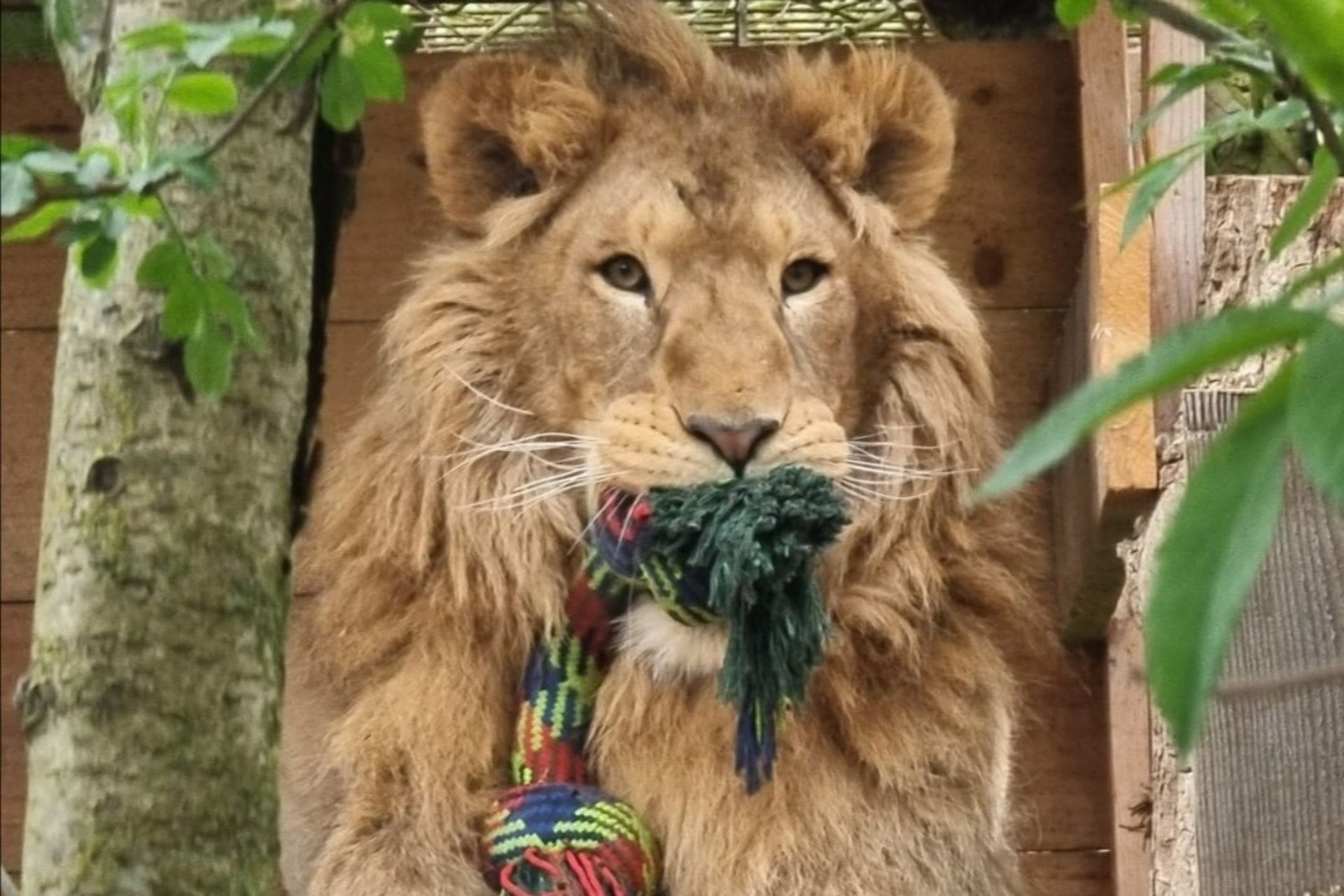BSc Wildlife Conservation applicant, Holly Atkinson is currently volunteering in the Netherlands at FELIDA Big Cat Sanctuary for 8 weeks. Here she blogs about her experience.
‘FELIDA is an incredible Project from the international animal welfare organisation Four Paws that works tirelessly to provide special care for rescued big cats, such as Simba – a lion who was drugged and used in a private music video.
They provide a forever home for many cats with long-term health issues that need close observation; however, if the individuals are able to recover from the mental and physical implications of the trauma they’ve been through they are able to travel to LIONSROCK Big Cat Sanctuary in South Africa where enclosures span at least a hectare giving them the best possible captive life in a species-appropriate environment.
Day-to-day activities start with the cleaning of enclosures which we normally finish by lunchtime, in the afternoon alongside maintenance chores around the grounds we make enrichment for the cats and do positive re-enforcement training. The training both helps keep their minds stimulated and allows common medical and safety procedures to be done with little to no stress and without anaesthetic. These could include vaccines and blood tests, this significantly reduces stress for the animals and build trust between them and the keepers.
It’s always so much fun watching the cats play with the enrichment we’ve made! The amount of joy they can get from a cardboard box or blood ice lolly is infectious- even better if it’s hanging from a rope! It’s so rewarding to see them showing so many natural behaviours.
My favourite activity though would have to be the observations I do with Simba, since I started I feel so much closer to him and have a much deeper understanding of his personality.
I set up a timer and watch from a distance to not distract him, every 30 seconds I mark down his behaviours using a standardised ethogram. I do this once in the morning and twice in the afternoon. I do this because he tends to pace a lot (a stereotypical behaviour often linked with stress) and I’m trying different things, such as enrichment, to see if it makes a difference to his behaviour over time and so I can maybe gain an insight into when and why he paces.
“Its great to hear that Holly is getting stuck in to relevant projects even before her degree. These are indeed the kinds of things that our students can look forward to during and after coming to study Wildlife Conservation at Kent” – Dr Jake Bicknell, Lecturer in Conservation Biology
On the evening of the summer solstice we welcomed an 8 month old lion named Nikola into the sanctuary which was just so amazing to be a part of (one of the highlights of my life!).He travelled all the way from Montenegro and everything went so smoothly, we couldn’t be happier that he’s left his past behind and is now safe here in our care.
As I’m writing this he’s only been with us 3 days so at the moment he’s still quickly overwhelmed but that’s to be expected when he’s travelled such a long way and with all the new sounds and smells around him. But I’ve already seen some progress as yesterday he felt calm enough to fall asleep which is such a huge step in the right direction and I can’t wait to watch his personality come out as he fully adjusts to his new home.
“There is no substitute for first hand experience with wildlife, whether it is working with captive populations or those in the wild. Monitoring the behaviour of individuals, as Holly is doing, can provide important insight into how to effectively manage wildlife populations in captive environments” – Professor Jim Groombridge, Professor of Biodiversity Conservation
I feel extremely privileged to have the opportunity to work with and learn from the dedicated team at FELIDA, I will never be able to thank them enough for the experience they’ve given me and how welcoming they’ve been. A big thank you for everything they do, it feels good knowing there are such amazing people in this world doing there best to make a difference.’
Learn more about the BSc Wildlife Conservation degree at Kent

